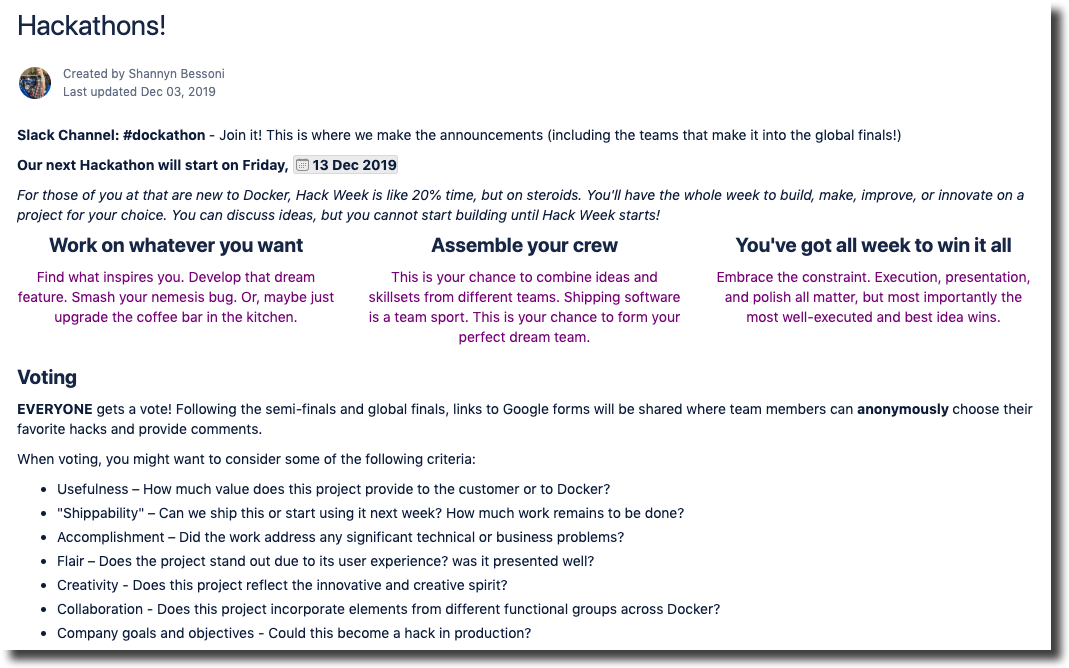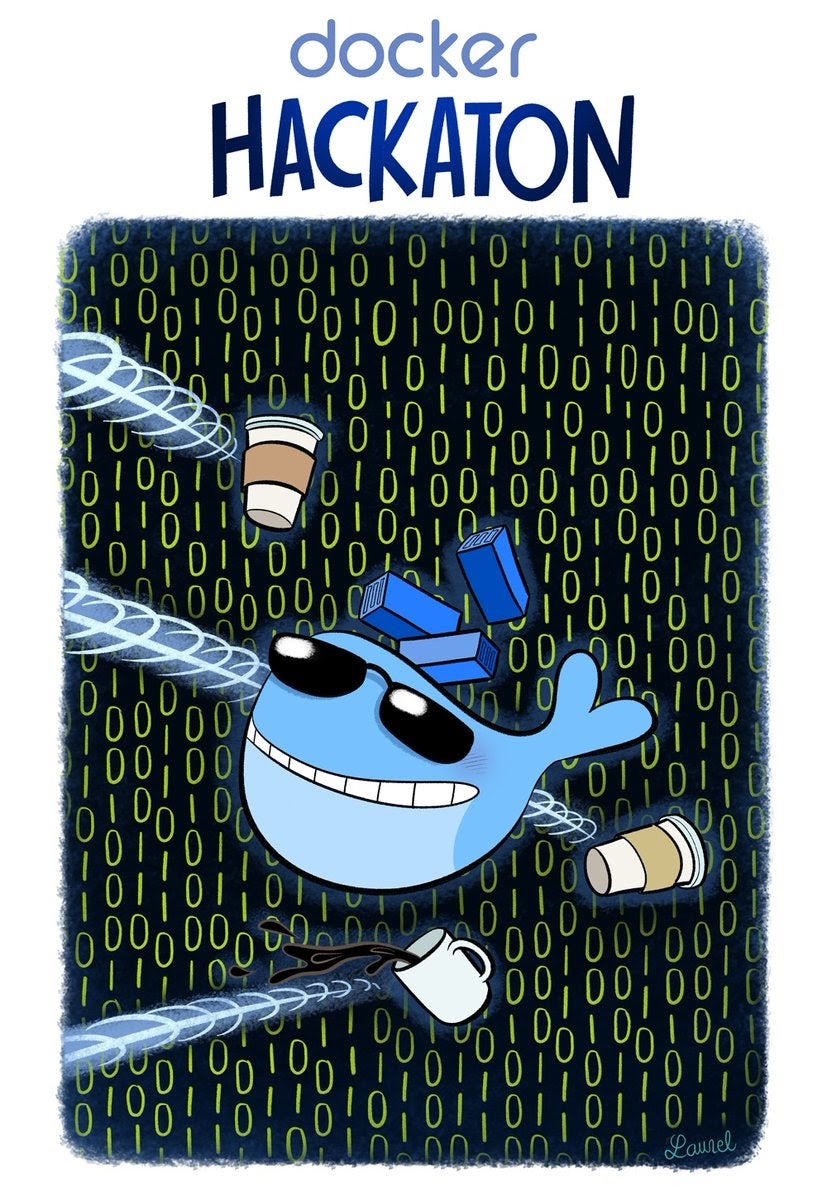Since its founding, Docker’s mission has been to help developers bring their ideas to life by conquering the complexity of app development. With millions of Docker developers worldwide, Docker is the de facto standard for building and sharing containerized apps.
So what is one source of ideas we use to simplify the lives of developers? It starts with being a company of software developers who builds products for software developers. One of the more creative ways Docker has been driving innovation internally is through hackathons. These hackathons have proven to be a great platform for Docker employees to showcase their talent and provide unique opportunities for teams across Docker’s business functions to come together. Our employees get to have fun while creating solutions to problems that simplify the lives of Docker developers.
At Docker, our engineers are always looking for ways to improve their own workflows so as to ship quality code faster. Hack Week gives us a chance to explore the boundaries of what’s possible, and the winning ‘hacks’ make their way into our products to benefit our global developer community.
-Scott Johnston, Docker CEO
With that context, let’s break down how Docker runs employee hackathons. Docker is an open source company, and in the spirit of openness, I am sharing all the gory details here of our hackathon.
First of all, our hackathon is known as “Hack Week.” We conduct hackathons twice a year. Docker uses Slack channels to manage employee communications, Confluence for team workspaces and Zoom for video conferencing and recording of demos. For example, we have a Confluence Hack Week site with all the info an employee needs to participate: hackathon rules, team sign-ups, calendar and schedule, demo recordings and results.
Because we still need to perform our day jobs, we run Hack Week for a full work week where employees can manage their time but are granted 20% of that time to work on their hackathon project during work hours. Below is a screenshot of Docker’s internal site for Hack Week that provides simple guidance and voting criteria – every employee gets a vote!

Docker Hackathon Home Page

What makes this fun at Docker is the fact that we have employees participating from Paris, Cambridge (UK) and San Francisco. There are no constraints on how teams form. You can have members from all three locations form as one team. Signing up is simple – all we require is a team name, your team members, your region and a 1-3 sentence description of your “hack.” Below is the calendar from Docker’s last Hack Week which we ran back in December 2019. This should give you a good overview of how we execute Hack Week. This actually runs quite smoothly for Docker despite the 8-9 hour time difference between our teams in San Francisco and the teams in the UK and France.
The winning team for December’s Hack Week was Team M&Ms (s/o to Mathieu Champlon in Paris and Michael Parker in Cambridge) after garnering the most employee votes. The description of their hack was “run everything from Docker Desktop.” The hack enables auto-generation of dockerfiles from Docker Desktop. (A dockerfile is a text document that contains all the commands a user could call on the command line to assemble a container image).
I spoke with Michael Parker regarding his motivations for participation in Hack Week. “Hack Week is a great innovation platform – it lets employees show what can be easily implemented with our current systems and dream a bit bigger about what might be possible rather than focusing on the incremental feature tweaks and bug fixes.”
Finally, I have shared the recorded video below from our Hack Week winning team. This will give you a good idea as to how we present, collaborate and vote in a virtual work environment with teams spread across two continents and an island. It’s a 6-minute video and will give you a great view of how passionate we are about making the lives of developers that much better by making their jobs that much easier and productive.
Feel free to let any of this content we have shared inspire your organization’s employees to plan and conduct your own hackathons. I remember back in 2012 when I was participating in a public hackathon at Austin’s SXSW Interactive Conference seeing none other than Deepak Chopra kicking off the event and inspiring developers. He talked about hackathons as a form of “creative chaos” and how conflict and destruction of established patterns can often lead to creativity and innovation. I think this is a great description of a hackathon. Are you ready for some creative chaos inside your own organization?

